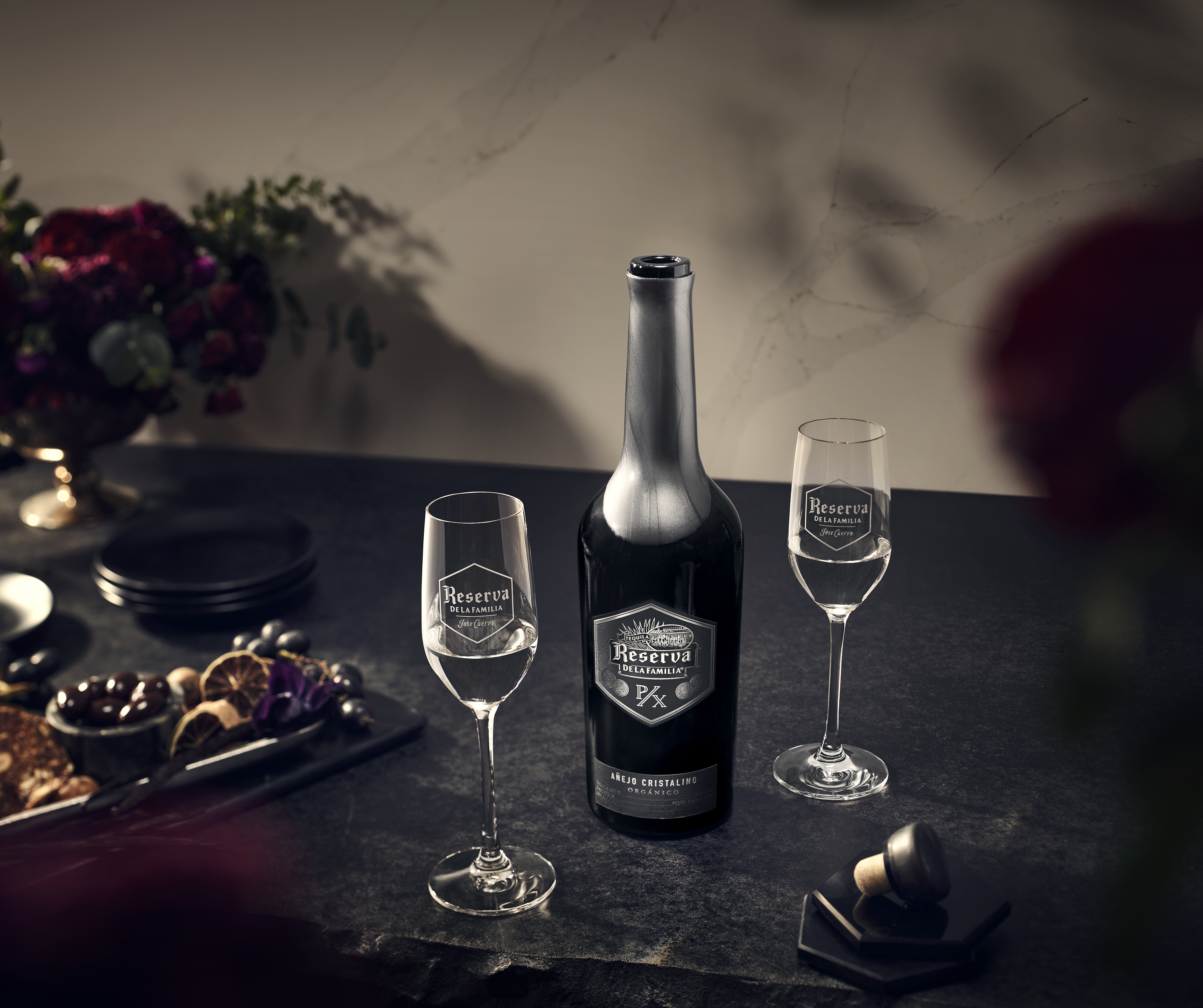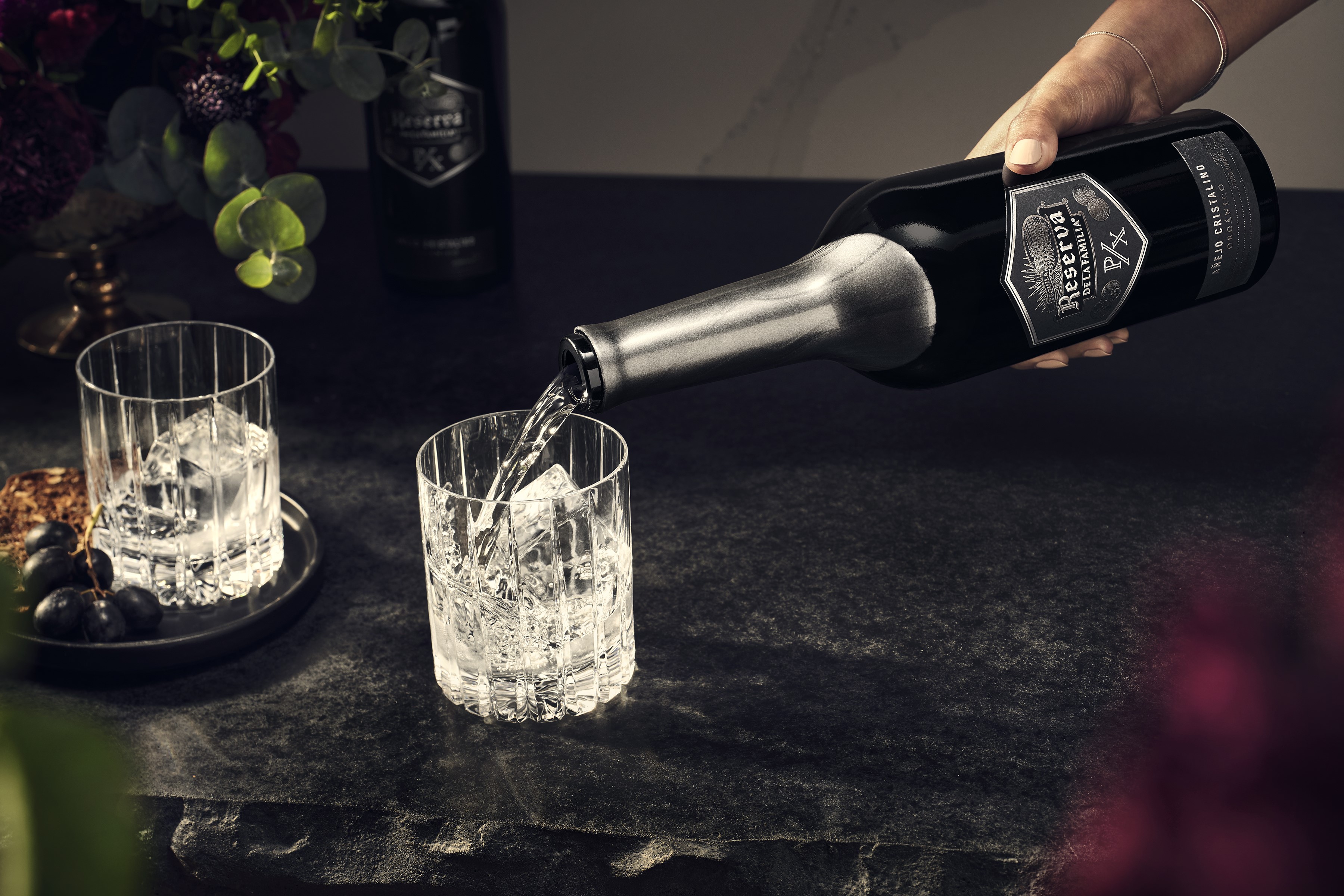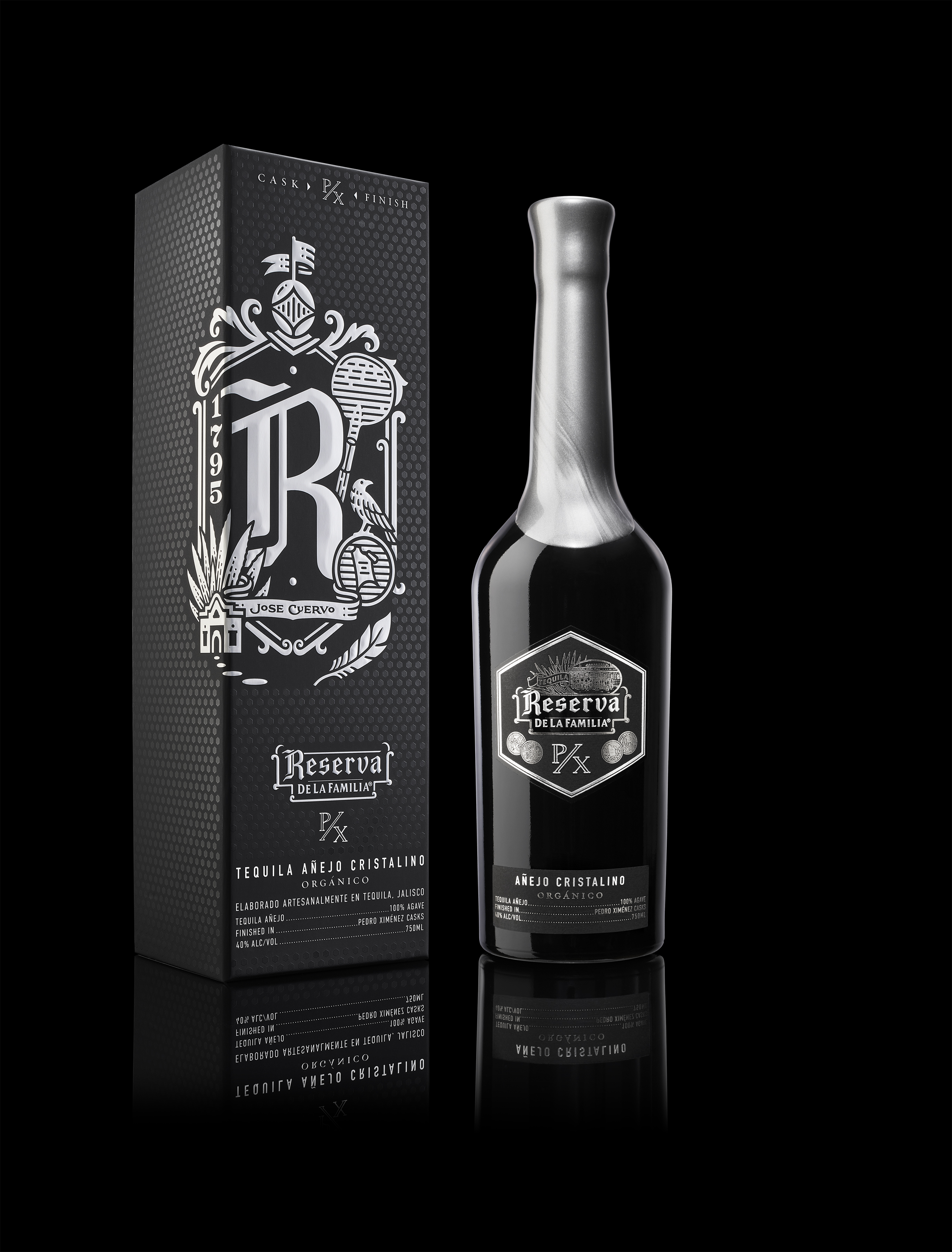Spirit Of The Week: Reserva De La Familia Añejo Cristalino Organico
Jose Cuervo’s apex label crafts its first sherry-aged cristalino.

“Bienvenidos a Tequila, this is your home,” graciously welcomes Alex Coronado, Head of Production and Master Distiller for Reserva de la Familia. “This is a dream come true. We started this journey more three years ago, with the vision and the dream of Juan Domingo [Beckmann] to add a new member of the Reserva de La Familia family, so I’m really so happy.
“Of course the liquid is amazing, the package is very elegant, and there’s a lot of teamwork behind it,” Coronado continues. “I have the opportunity to be here, but there is a lot of man hours behind this.”
We’re all gathered in a vast agave field in Tequila, the birthplace of the commercial venture of the namesake spirit, owned by the Beckmann-Cuervo family. And while we’ll soon be dining nearby at an introductory dinner cooked by James Beard Award-winning chef Daniela Soto-Innes—Chef de Cuisine of NYC’s Cosme and Atla and the youngest ever named World’s Best Female Chef—at the moment we’re all sitting around a table under a celestial display no one is soon to forget.
The sky is a near iridescent hue of orange and pink, somehow both pastel and lit from within, covering the entire canopy above. Only a nearly full moon and the brightest starts twinkle through the watercolor painting above our heads.
We’re here to celebrate the launching of Reserva de la Familia Añejo Cristalino Organico, only the fourth permanent expression to enter the esteemed label’s portfolio—the apex offering created by Jose Cuervo, the oldest and largest makers of tequila in the world.

The Cuervo family first received its license to make vino de mezcal in 1795, and for centuries kept the very best tequila they crafted for themselves…until 1995, that is, when the family finally decided to share their private stock to the most discriminating of customers.
The RDLF brand leverages only the very best the Beckmann-Cuervo has at its disposal: the family’s ripest (aged 9 to 10 years) agaves grown in fields dedicated strictly for RDLF tequila, all closely trimmed in what they dub the jicama cut—a labor intensive, closer shave of the piña where you cut out all the green including the cojollo (the nub where the quiote, or stalk, normally grows from) to remove any bitterness.
Traditional methods dating back a quarter millennia are then applied, like cooking in ancient stone ovens—the oldest such furnaces in the Americas—for two days, and fermenting longer than any other Jose Cuervo product. Seven small copper pot stills are used for distillation, the entire process done completely separate from any other tequila in the La Rojeña campus—the oldest distillery in Latin America.
Meaning when Coronado is crafting anything for the RDLF label, the entire facility is blocked off for that purpose only; no other juice is made at the time so the team can remain utterly focused on making the very best tequila it can. It will then sell the blanco as Platino, or pour it into brand new American oak to age as needed (at least one year for any añejo bottle).
Finally it’s poured into Pedro Ximénez Sherry casks exclusively and moved to La Rojeña’s cool, underground cellars to mature and influence the añejo tequila with sherry’s unique magic.
What makes any tequila a cristalino, however, is that when the juice is finally done aging they filter it through charcoal, stripping the tequila of its amber color while retaining the hard-earned mouthfeel and complex sherry softness.

As Coronado explained, this new Cristalino Organico expression was the vision of the aforementioned Juan Domingo Beckmann, the 11th-generation scion of the Cuervo Dynasty and current CEO of Jose Cuervo. Fitting, as Beckmann is credited with launching the booming cristalino category when he created their Diamante expression for sister label Maestro Dobel in 2009.
“How can we do something that is appealing on the table, it’s silver, but it’s mellow?” the humble Master Distiller explains when we asked what was the original inspiration for making a cristalino.
“If we strip the color out of mature tequila, you will have additional notes that are part of mature tequila, easier to drink. And on the table it would look very proper.”
Reserva de la Familia Añejo Cristalino Organic can now be found nationwide for $150.
